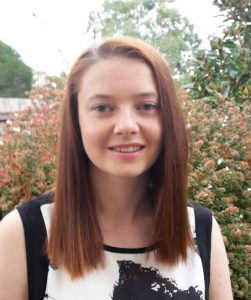Please tell us about your career pathway to date (positions and institutes).
I completed a Bachelor of Exercise and Sport Science (Honours) at Deakin University. My honours project investigated the physical activity patterns of firefighters during planned burn operations. This sparked my interest in physical activity research, but in particular the physical activity levels of individuals working in physically demanding occupations. After my honours, I started my PhD at Deakin University in 2016 and am now close to submission. My thesis focuses on emergency nurses’ activity levels at work and during leisure time. Throughout my PhD I have also been engaged in several research projects at Deakin University investigating children’s and adolescent’s physical activity.
How would you briefly describe your current research/job to someone who is not familiar with your field of study/work? What is your main research interest?
My research is aiming to understand how active emergency nurses are at work and during their leisure time. I came upon this research idea through some investigation into the literature where I identified that nurses’ are very active during their work hours, but research was calling for interventions to further increase their physical activity levels. Furthermore, there were no studies researching emergency nurses’, which was surprising given they are the first point of contact for patients at hospitals and make critical decisions about patient care every day. My thesis aimed to explore how their activity at work changed during a shift, whether activity during one shift was associated with the next, and the whether work/leisure activity impacted on each other. My main research interests are gaining a holistic view of nurses’ work and leisure time activity, and ensuring that they are working optimal schedules to allow them to recovery from their physically demanding work.
What are the main barriers you encounter/experience when conducting research, or what information/skills do you lack to conduct high quality research?
One of the main barriers I have encountered so far in my research is working with participants within a model of 24/7 care. Emergency nurses working within hospitals work a variety of shift times, which meant visiting the hospitals at different times to meet with participants.
What could help you as a student/ECR to further develop/grow in your current position?
Mentoring. I have found that being a part of an organisation, attending workshops and conferences, and most importantly the networking, to be the most helpful in developing my career. Through these activities you are exposed to a range of research and ideas that you may not have considered, or would be interested in learning. I have also had the chance to collaborate with other universities which I have found valuable. I would like to continue engaging in all of these activities to continue to develop my research career.
What do you think will be the next most important development in the nutrition and/or physical activity field?
I believe that in the physical activity field, there is still some work to be done in terms of understanding the activity requirements of different occupations in regards to interventions. It is well known that for sedentary occupations it is vital to increase physical activity through interventions. However, in more physically demanding occupations it is vital that the workers recovery is also considered when intervening due to the physicality of their work. This has begun to change, and I am excited to see this movement continue throughout the field.
You can get in touch with Steph at schappel@deakin.edu.au or follow her on Twitter @Steph_Chappel


